Generations of shoppers have come through the doors of James Pringle Weavers’ Holm Mills outlet in Inverness.
For decades the store and tourist attraction on the outskirts of the city has drawn locals and visitors.
Yet its location, changing shopping trends and perceptions of some buyers make it feel a bit forgotten.
A presence since the 18th century
The site in Dores Road has been occupied since 1798 when a mill lade was created underneath the building.
The Pringle family took over the site in the 1920s and started retailing in the 1950s.
Weaving and tours of the factory took place until close to the end of the 20th century.
Manufacturing then moved to the Borders and the business focused predominantly on retail.
The business survived after parent company Edinburgh Woollen Mill (EWM) and sister business Ponden Homes went into administration in 2020.
A rescue deal later saved some outlets while others had to close.
The century-old and cavernous James Pringle Weavers Holm Mills building houses a wide choice for customers.
This includes golf and whisky shops, shoes, clothing, including Harris Tweed and cashmere items, and Highland wear.
Weaving exhibition remains a tourist attraction
Free parking and an on-site restaurant are also attractions for those who make regular visits to the main store and next door Ponden Home Interiors.
Summer visitors will see more tartan and other Scottish goods on display, while in winter there is a more Christmas feel to displays.
A weaving exhibition still exists above the shopping area and attracts regular tours.
Most are pre-arranged, but are occasionally unannounced, like a recent party of 50 Danes.
Around 150,000 people visit the shop each year, with around 75-80% of customers now domestic.
The shop is an attraction for daytrippers from across the north of Scotland and from Moray and Banff, but there are fewer coach parties than before.
Cruise passengers also tend to stick to the city centre outlets like the James Pringle, Edinburgh Woollen Mill and Gleneagles of Scotland shops. They come under the same EWM banner but are run separately from Holm Mills.
“They do wonderfully well from the cruise passengers who get dropped off in the city centre.
“We have to work much harder to ensure we increase our footfall and maintain where we are”, says general manager Neil Souter.
‘We are kind of forgotten’
It’s one of the reasons he and staff will be distributing 5,000 leaflets to advertise the business despite it being a local institution.
“We have to do things like that. We have been here so long, but a lot of people don’t know about us.
“We are tucked out of the way. People gravitate towards the retail park. We are kind of forgotten.”
But, says Neil, James Pringle appeals to a wide demographic and there are signs younger people are returning.
“When the younger people come in, particularly at Christmas, and see what we’ve got, we’ve started seeing them come in the rest of the year.
“We still have our core (customers), but we are definitely seeing a much younger clientele.
“Over the years, we have seen mothers coming in with their daughters, and are now seeing those daughters coming in with their own daughters.
“There has been a disconnect. People who came here as youngsters, and are now in their 30s, are starting to be interested again in the brands we have.
“There is a perception among some people that it’s old-fashioned.
“But we are trying to get across we have changed. We’re not old-fashioned anymore.”
Plans to bring back craft fairs and Christmas market
The Holm Mills business now employs 20 staff, including six full time, and loyalty is strong.
One employee is approaching 30 years’ service. Another three, including Neil, are nearing 20 years, and seven more have been there more than 10 years.
Evidence of the pride they have in the business includes Neil and others recently painting the outside of the building and the shop floor.
“I don’t suppose there are many shops in the town where staff are outside painting”, he said.
These improvements, and a planned return of craft fairs and a Christmas market on site, are expected to further boost footfall.
Other plans include installing solar panels and LPG to reduce the outlet’s carbon footprint and cut its fuel bill of £9,000-£10,000 a month.
In the meantime, the Holm Mills shop will continue to support its customers and community.
What will be the next community project?
In 2019, it installed a RemPod, a screen designed to help people with dementia.
The facility looks like an old railway carriage with the screen showing passing countryside to provide a calming atmosphere.
In 2022, a fundraising drive led to a defibrillator being installed.
And last year a lifebelt was unveiled on the riverbank as the opening of the salmon season was marked.
“We’re now looking for another project to support”, said Neil.
Read more about the city:
Inverness city centre: Track the empty and occupied units to measure the health of the high street
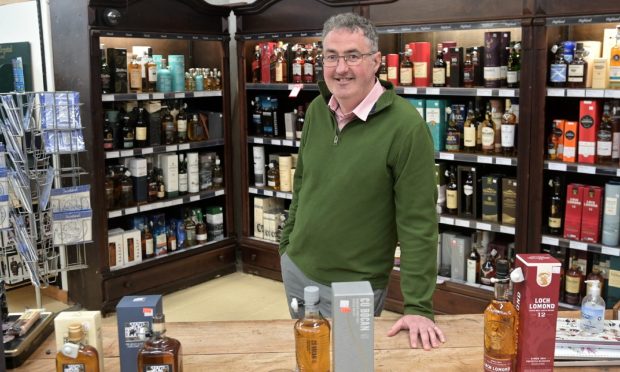
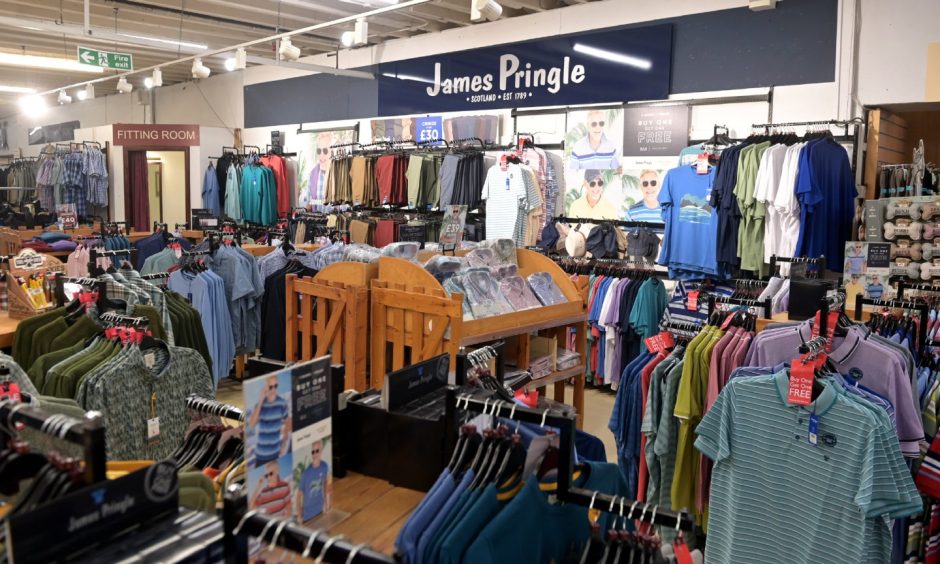
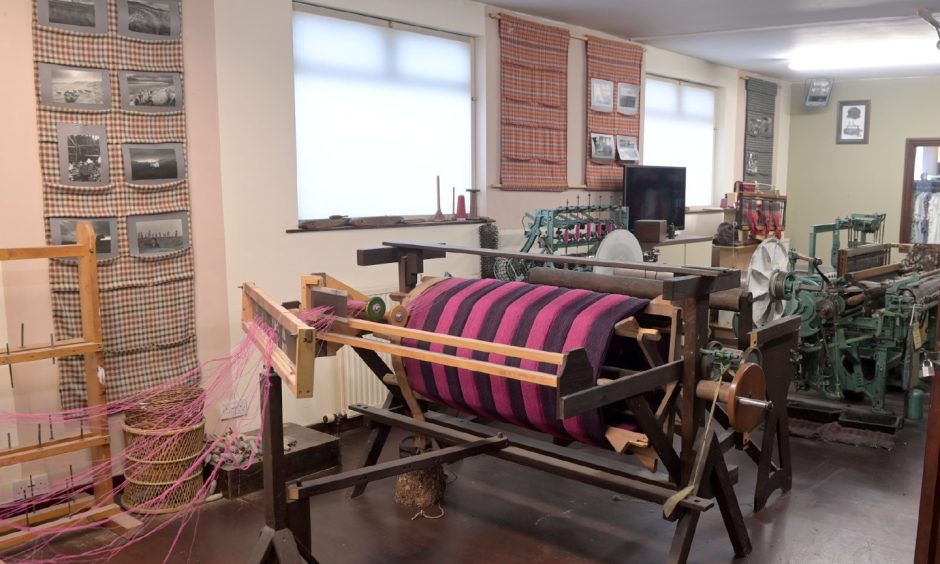
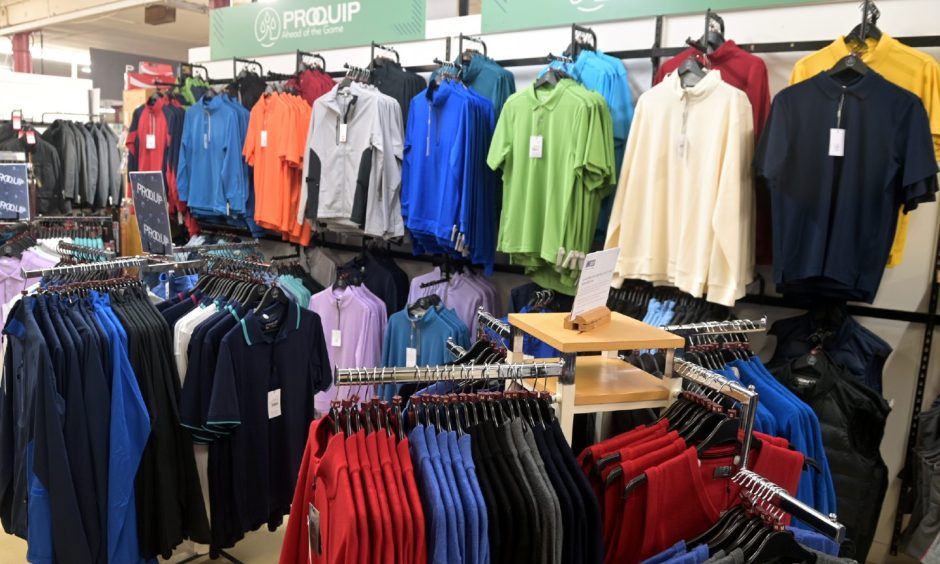
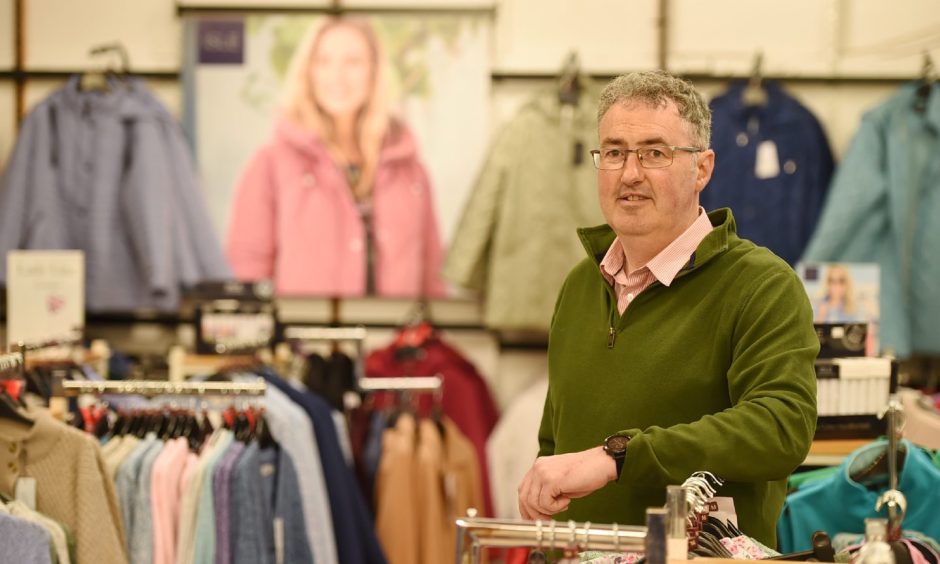
Conversation